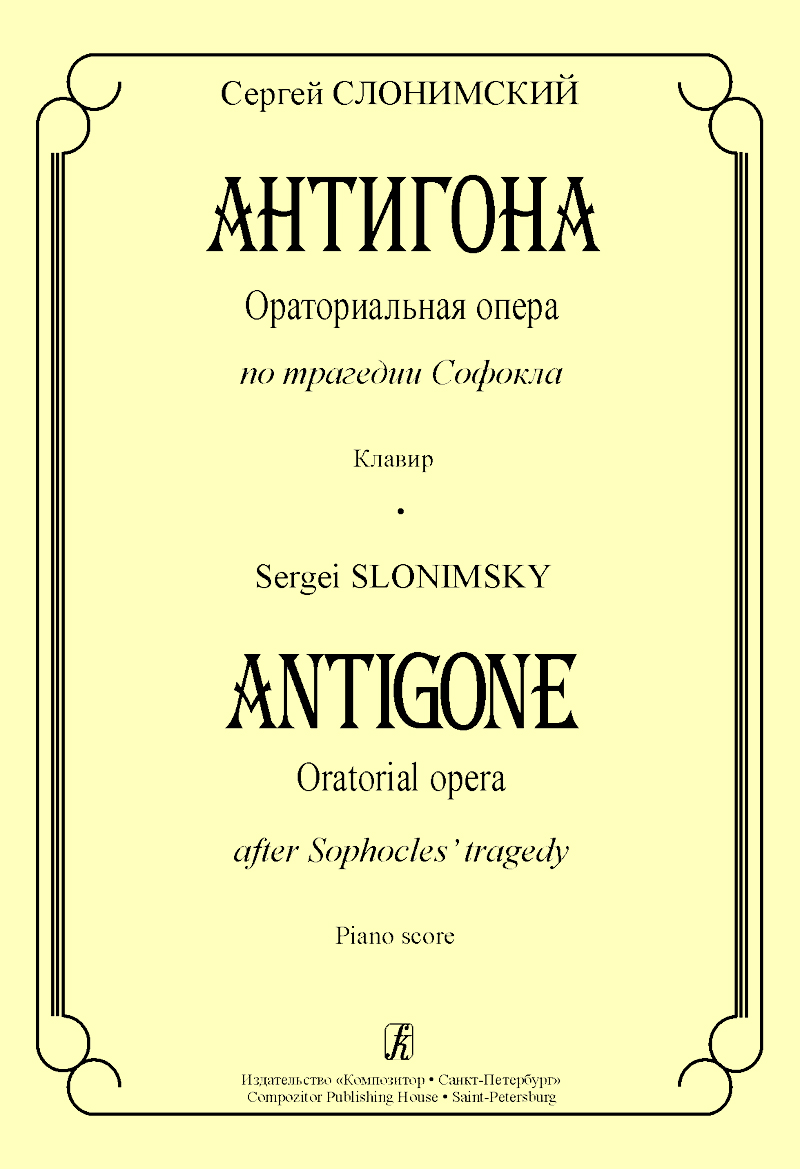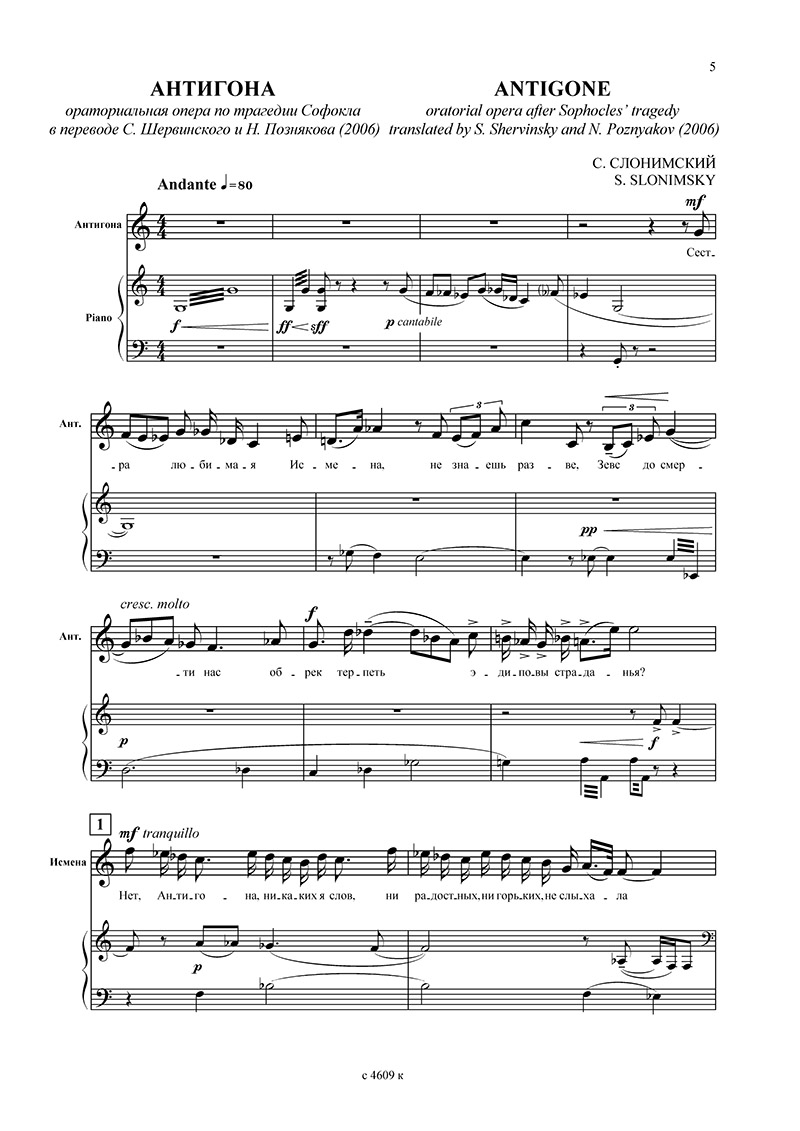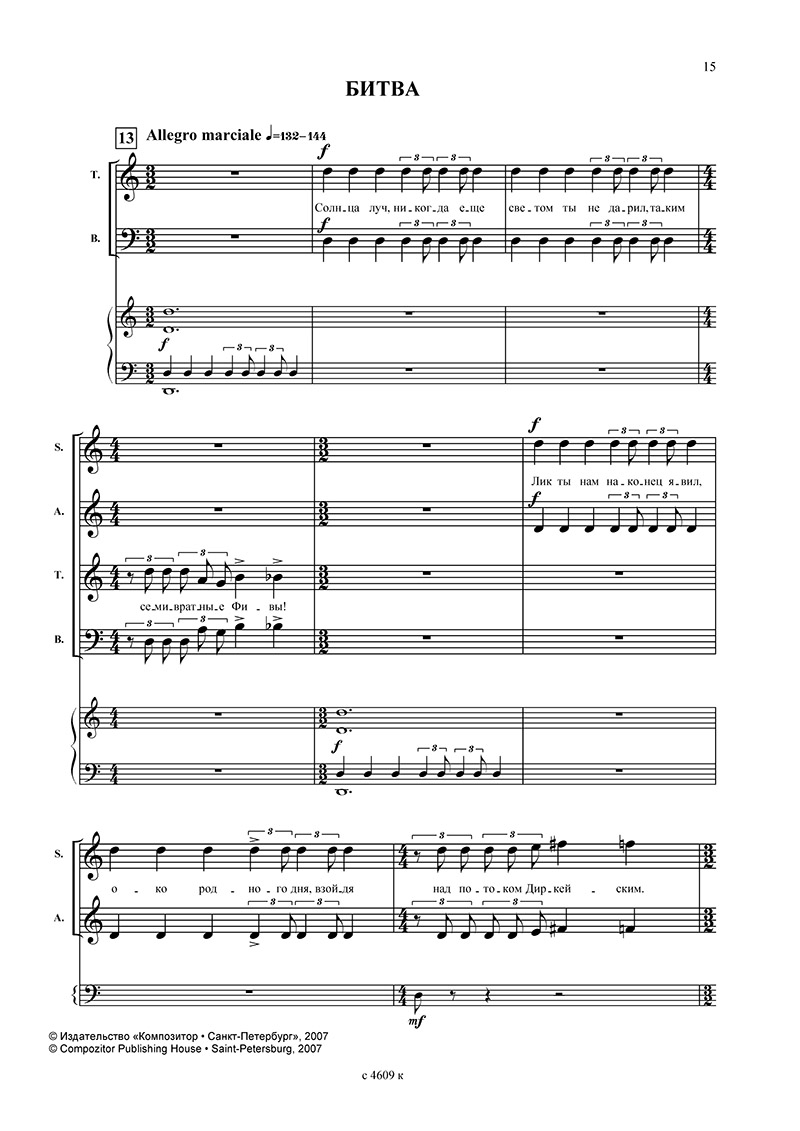
Slonimsky S. Antigone. Oratorial opera. Vocal score
- Author:
- Slonimsky S.
- Author (full):
- Sergei Slonimsky
- Title (full):
- Antigone. Oratorial opera after Sophocles' tragedy. Vocal score
- Number of pages:
- 120
“Antigone” — oratorial opera is composed in 2006 after Sophocles' tragedy, the text of which is slightly abridged in some places.
King Oedipus died having atoned for his unwilling sins, meanwhile fratricidical wars rose between his sons for the power in Thebes. Polyneices was banished by his younger brother Aetheocles for having summoned the warriors from the other cities. However, both of them were killed, fighting each other during the battle. Cunning Creont, king of Thebes, brother of Oedipus' wife, forbade burying Polyneices, claiming him as the enemy of the whole state. Antigone, bride of Creont's son Haemon, decides to violate the obscurantist's order, for to fulfil her duty and to bury her brother with proper honours. Even Antigone's sister Ismene can't stop the brave girl. Haemon implores his father to take mercy on his beloved, but Creont is left unbending. Antigone is doomed to be immured in a cave. Haemon curses his father, rushing to his sword right at the last dwelling of his unhappy love. Creont's wife stabs her heart with a dagger, near her lifeless son. Suddenly Creont realizes fatal suicidical inevitability of his ferocious orders, moaning over his deeds in despairing solitude.
The music of “Antigone” consists of solo monodies, generalized choir stasimas and orchestral commentaries to dialogues and debates conducted by four personages. The ancient tradition is revived in diatonic, chromatic and quarter-tone (“enharmonic”) modes. The quarter-tones are inserted into the most tragical scenes — Antigone's lamentation and fading away to non-being, orchestra entr'acte before the final, Creont's desperation.
- Author
- Slonimsky S.
- Author (full)
- Sergei Slonimsky
- Title (full)
- Antigone. Oratorial opera after Sophocles' tragedy. Vocal score
- Number of pages
- 120


